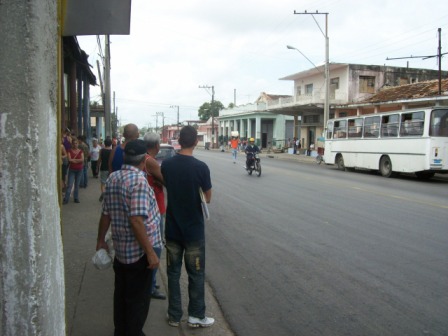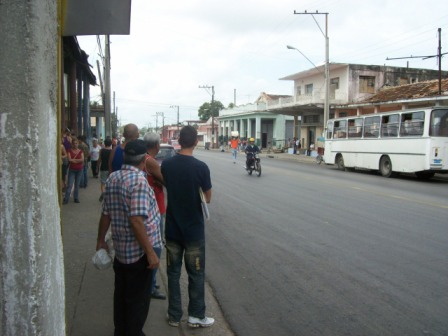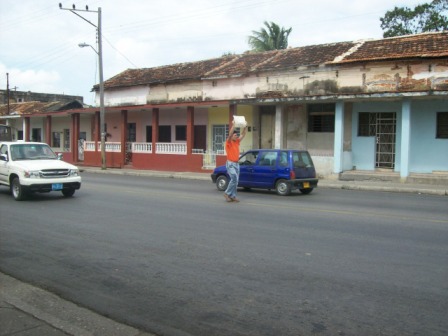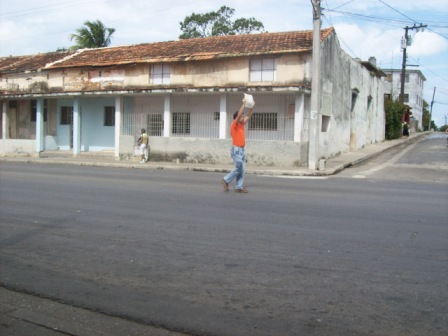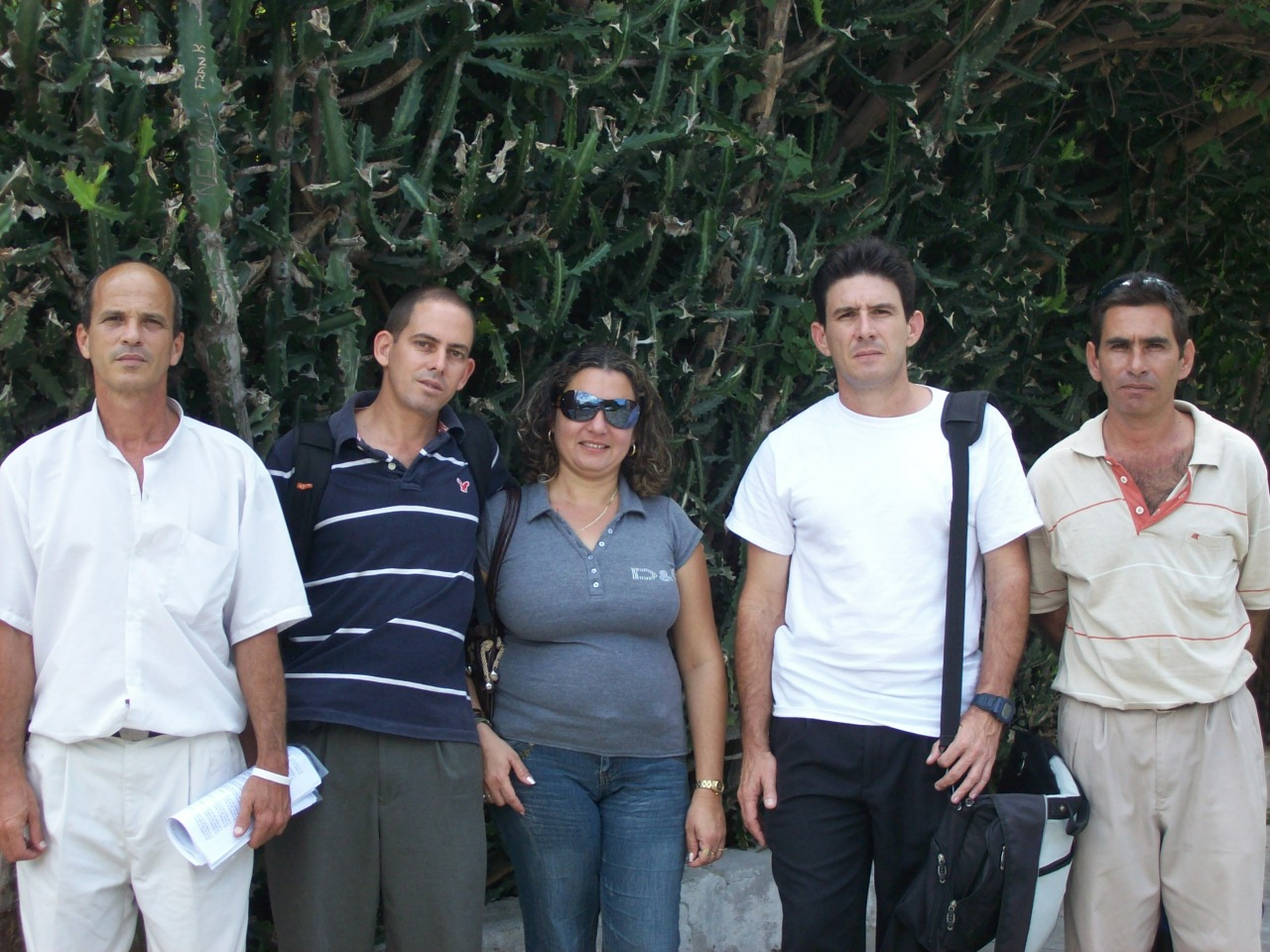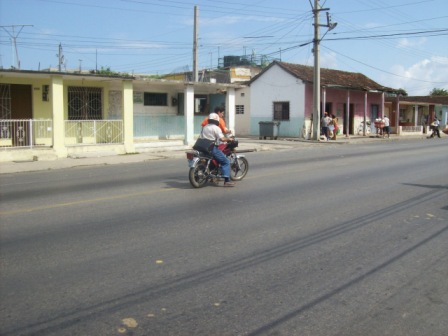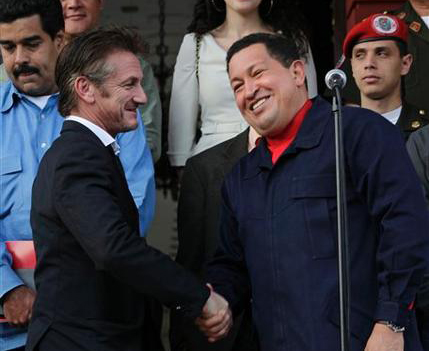 The Florida media commented on the details of the flow of musicians and writers that travel from Havana to Miami or New York, where they perform in clubs and theaters or speak in universities and conference rooms.
The Florida media commented on the details of the flow of musicians and writers that travel from Havana to Miami or New York, where they perform in clubs and theaters or speak in universities and conference rooms.
Among the literary figures the writer Miguel Barnet, the President of the Union of Writers and Artists of Cuba and the Deputy to the National Assembly, whose presence in New York resulted in opposing opinions of his official chanting, his signature of support for the quick execution of three young men who tried to hijack a boat to escape the island, and his declaration of support for the convicted spies incarcerated in the United States.
I know that someone should unveil the masks of the accomplices of the dictatorship that utilize the springs of the democracy to promote their works and earn money, but I don’t believe that the writer-functionary deserves that much attention. In Cuba barely anyone speaks of him despite the re-releases of his novels (Cimarrón, Gallego, Canción de Rachel) and poems, though sometimes we see him on TV talking about identity or speaking in sessions of the National Popular Power Assembly.
If Barnet wasn’t a simulator accustomed to excluding the creators who challenge the rules of the game, he would not be leading UNEAC nor enjoying awards and invitations to foreign countries. But our grand intellectual commissioner removes the mask at times and reveals his way of thinking, which is very different than the things he says publicly out of fear or convenience.
I now remember my professional contacts with Miguel Barnet in the Fernando Ortiz Foundation towards the end of 2005, while editing my book The Basques in Cuba, still unpublished even though it was approved by the team of investigators and the Board of the Directors, presided over by Barnet and an annoying Trinidad Pérez,
In the first contact Barnet gave me his assessment of the book, talked about its ethno-historic and cultural contribution and weighed data on the confluence of the Canary Islanders, Galicians, Catalans, Hebrew and Chinese, many of whom fled with their descendants, “Frightened by the measures of the Revolutionary government and by its affiliation with Eastern Europe.”
In the second meeting my host exchanged erudition for the proposal to introduce some changes suggested by the UNEAC editor, hired by the Foundation to edit and redesign the work, which I opposed from the ideological suspicions of the specialist. Barnet agreed I was right but insisted on the need to look after the institution, because, “The elite who run the country fears anthropological studies and that would be pretext enough to close the Foundation.” He added that on two occasions he’d had to sit down with Abel Prieto — Minister of Culture — faced with absurd interpretations of the magazine Catauro. “Imagine what would happen if a book like yours were to make value judgments that put the hunters of phantoms on their guard.”
Given his fears I said something about freedom of expression that bothered the writer, who felt the need to talk about himself.
“I was one of those young men of the bourgeoisie who bellowed against the Batista dictatorship until they arrested me and I spent a night in a dungeon, listening to the screams; at dawn the minister of education too me home, my family sent me to the residence in Tarará where I didn’t leave until 1959. I joined the militia and undertook the different tasks of the time, coming to the point of throwing an ashtray at Paulita Grau and distancing myself from Lidia Cabrera during Operation Peter Pan, but years later I went to Miami and asked their forgiveness, and for that State Security called me in; for them it’s all about ideology. I’m not brave but I know the barbarians. They still haven’t apologized for the craziness of the 1968 Revolutionary Offensive, nor for the Congress of Education and Culture of 1971. What can we expect from those gentlemen who deny Doctor Hilda Molina permission to travel to Argentina and reunite with her son and meet her grandchildren?”
When I met with Barnet for the third time, in January of February of 2006, the book was ready for printing and we talked about the question of the check in hard currency for my foreign sponsors. That day the conversation was brief and relaxed, but the book hasn’t been released although they paid me for the copyright.
I don’t know if Barnet is one of the Bourbons the Bourbon Eusebio Leal recently spoke about, but for the last five years I understand a little better the caste of the gentlemen who shepherd the country’s intellectual flock.
February 15 2011

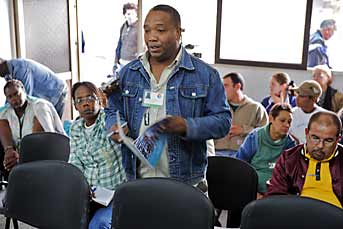 The meetings of all the country’s social sectors to define what the economic model of the future should be like, is described by the newspaper Granma was an unprecedented and unlikely event in the modern world.
The meetings of all the country’s social sectors to define what the economic model of the future should be like, is described by the newspaper Granma was an unprecedented and unlikely event in the modern world.

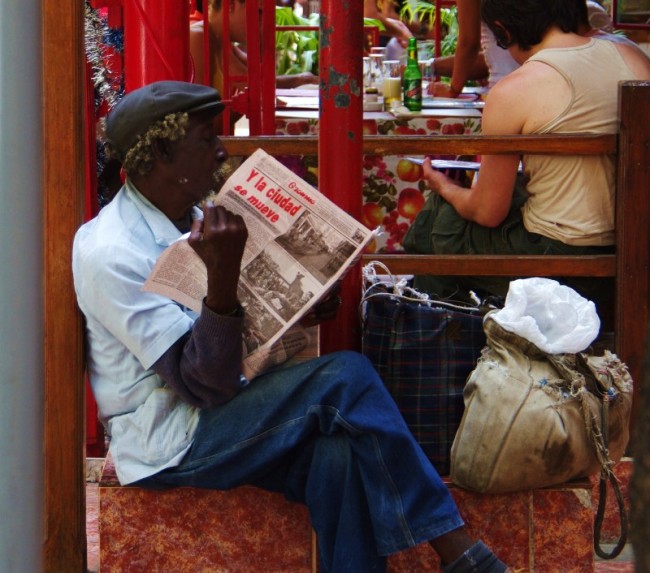




 It’s quite clear, I said, when you go to the hard currency stores you always find on the shelves more than ten products from that enemy country, some with the flag and everything. It’s the same thing in the pharmacies in hard currency, you see a variety of medicines from the same country. So, I demanded, “What is the blockade?”
It’s quite clear, I said, when you go to the hard currency stores you always find on the shelves more than ten products from that enemy country, some with the flag and everything. It’s the same thing in the pharmacies in hard currency, you see a variety of medicines from the same country. So, I demanded, “What is the blockade?”